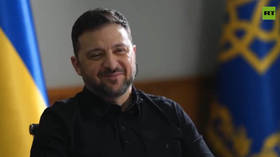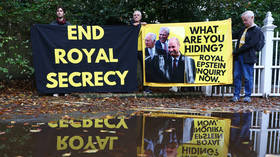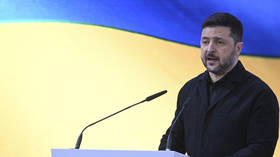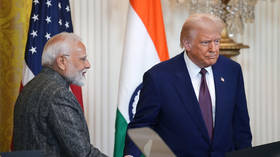Norway campaign to strip mosques of subsidies – ‘political game of populist right-wing party’
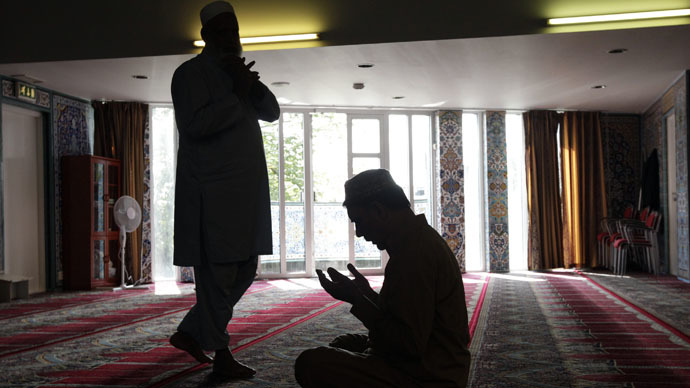
MPs from the Norwegian Progress Party are being crass in their anti-Muslim rhetoric, showing concern about immigration in order to keep the support of their political base, Malcolm Langford of the Norwegian Centre for Human Rights (NCHR), told RT.
Per Sandberg of the Progress Party has started an anti-Muslim campaign, proposing to strip mosques of government subsidies, and also shut down Muslim schools if they preach “classical” Shia law.
RT:Do you think the MP’s proposal will enjoy great popularity among Muslims especially if is based on the government’s decision to identify the acceptability of a version of Islam?
Malcolm Langford: I’m not sure whether it’s such a good idea. It’s an interesting proposal from the Progress Party in Norway, a populist right-wing party in this country. However, it is only a minority party - they get between 10, maybe sometimes up to 20 percent of the vote. They are currently in the government, but they are only a minority [in the] government, they rely on center parties. It is unlikely in practice that such a proposal would get the support of the whole parliament.
RT:Do you see the proposal for banning Muslim prayer in schools as direct discrimination in practicing their religion?
ML: This party has come up with previous proposals trying to regulate Islam - for example, trying to stop primary schools and secondary schools based on Islamic religion being established. The problem in Norway is that there are also Christian schools who are allowed to be established and founded .. despite this, the party wanted to stop the Islamic schools. In practice they can’t, they have to allow freedom of religion with both Christian and Islamic schools.
Generally, trying to intervene in the way churches and mosques organize their services, what messages they send is very difficult unless it’s based on some sort of objective standard like incitement to violence. That would be the only reason or grounds on which under today’s law in Norway you could intervene. But obviously the Progress Party wants to change that situation.
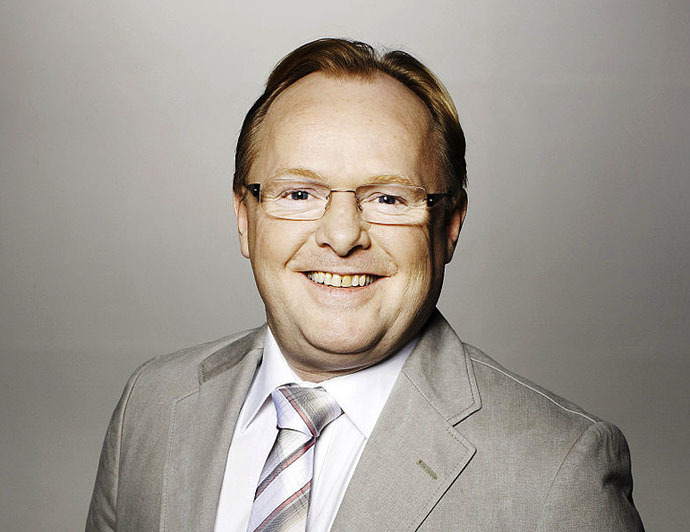
RT:Can you justify such an uncompromised stance of the government towards the Muslim population?
ML: This particular party, like it’s counterpart in Denmark, has been very critical about immigration. It’s the concern of some voters in Norway and some major issue for this particular party. Many of their proposals have not been successful initially but over time other parties have become a little bit more critical to immigration in their policies.
At the same time we have to say that there is an element of playing politics here. This particular deputy leader [Per Sandberg] in the Progress Party is crasser in his statements. It’s a way of keeping support from their political base, from their supporters and showing they continue to be concerned about immigration even though in the government they cannot do so much.
RT:Will bringing government ideologists to preach in mosques be accepted by Muslim population?
ML: It wouldn’t be acceptable to the Muslim community and I don’t think it would be acceptable to most Norwegians - the idea that the government can send in preachers. In fact, until recently the church was part of the state, but two years ago the process has begun - and it’s now complete - where the churches are completely separate from the state. So the idea that suddenly you would reverse that policy and send in preachers to a particular church would be seemingly inconsistent with the constitution. That proposal in particular- I can’t see working.
In other countries it’s been done to a certain degree, particularly in Turkey, where they used this process to secularize the country over the last hundred years. But there has been a backlash.
One has to be concerned about incitement to violence or some of the values which were expressed by some of the preachers in the mosques just like in any other religion. But there might be other ways of tackling it than sending in government preachers, in my view.
RT:Do you think that rhetoric like this is likely to incite more extremists and backlash among Muslims?
ML: I think overall they probably do more harm than good. Obviously they create a debate. At the same time they can contribute arguably more to marginalizing Muslim minorities in the country. It is already a rather tense climate after the Paris bombings, after Copenhagen - there were Islamist terrorists involved. But many Muslims reject the idea that these individuals could act in the name of Islam. In this climate that sort of proposals and particularly in the way which they expressed are not helpful. More pragmatic solutions in terms of dealing with extremism and hate, in a much more dialogical way, might be much more useful.
The statements, views and opinions expressed in this column are solely those of the author and do not necessarily represent those of RT.
The statements, views and opinions expressed in this column are solely those of the author and do not necessarily represent those of RT.


